Confirmed plenary speakers
Coral Barbas – Spain
Information Quality: The Analytical Chemistry Challenge in Metabolomics
PROF.CORAL BARBAS is currently Full Professor of Analytical Chemistry at Pharmacy Faculty, Universidad San Pablo CEU, Madrid (Spain) and Director for the “Centre for Metabolomics and Bioanalysis” (CEMBIO). She is also Director for CEU International School of Doctorate (CEINDO); Visiting Professor at Imperial College London. She is the author of around 400 papers, with current research interests in all the steps of multiplatform metabolomics (GC-MS, LC-MS and CE-MS) in all kinds of biological samples. She received the Prize of the Belgian Society of Pharmaceutical Sciences (BSPS) in 2018 and received an Honoris Causa doctorate from the Medical University of Bialystok in 2018 and recently the Nernst-Tswett award by the European Society of Separation Sciences (EuSSS 2022).She is in the “world’s top 2% scientists list” of Stanford University. Member of different boards of international Committees and formerly Editor for Journal of Pharmaceutical and Biomedical Analysis.
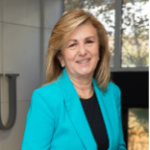
Hugo Duminil-Copin – Switzerland
Can one truly understand by counting?
Born in 1985 in Châtenay-Malabry in France, Hugo Duminil-Copin grew up in the Paris region. After passing through the École Normale Supérieure in Paris, he graduated from the University of Paris-Saclay. Appointed professor of mathematics at the University of Geneva in 2013, he has also been a permanent professor at the Institut des Hautes Etudes Scientifiques in Bures-Sur-Yvette since 2016. In 2022, he received the Fields medal from the IMU.

Gert Desmet – Belgium
Performance Characteristics and Applications of Next-Generation Micro-Pillar Array Columns
Gert Desmet has a Master’s degree and PhD in chemical engineering from the Vrije Universiteit Brussel (VUB), Brussels, Belgium, where he currently is a full professor in chemical engineering. His research mainly focuses on the miniaturization and automation of separation methods, as well as on the investigation and the modeling of flow effects in chromatographic systems. He is a past chair of the Chemistry Panel of the Flemish National Science Fund and currently is the Deputy-director of the Solvay Institute for Chemistry. He also is an Associate Editor for the journal “Analytical Chemistry” and was the recipient of an ERC Advanced Grant. He is also a member of the permanent scientific committee of the international HPLC and ISC conference series.
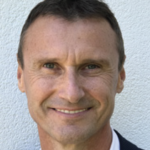
Michal Holcapek – Czech Republic
Translating UHPSFC/MS method into real clinical practice: Pancreatic cancer screening based on plasma lipidome
Michal Holčapek is a professor of analytical chemistry at the University of Pardubice, Department of Analytical Chemistry. He received his Ph.D. from the same university in 1999. His research focus is mass spectrometry and its coupling with liquid chromatography or supercritical fluid chromatography, applied mainly in lipidomic analysis and cancer biomarker research. He obtained several scientific awards, for example, the Herbert J. Dutton Award (2022, American Oil Chemists’ Society) and the Power List of 100 most influential people in the analytical sciences (2020, 2015, and 2013, The Analytical Scientist). He is a coauthor of more than 150 articles in international journals, h-index 46, amember of editorial advisory boards of Trends in Analytical Chemistry, Analytical and Bioanalytical Chemistry, andLipids. He is one of the founding members of the Lipidomics Standards Initiative and a vice-president for conferences in the International Lipidomics Society.

Valérie Pichon – France
Bio- and bio-mimetic molecules as powerful tools for target analysis of compounds in biological fluids and complex molecule characterization
Valérie PICHON, full professor at Sorbonne University (Paris), leads the Department of analytical chemistry (LSABM), a part of the Institute of Chemistry Biology and Innovation (CBI) and also co-leads the CBI (ESPCI Paris, PSL University, CNRS). Her main research interests include the development and miniaturization of antibody- or aptamer-based sorbents and molecular or ionic imprinted polymers for the selective extraction of target compounds present in trace amounts in complex samples. She is the author of over 140 publications, 7 book chapters and 3 patents. She has received the Analytical Chemistry Department Prize of the French Chemical Society (2001), the Silver Medal of the French National Centre for Scientific Research (2022) and recently the Senior Prize of AfSep, the French Association for Separation Sciences (2023).

Koen Sandra – Belgium
A journey into pharmaceutical and biomedical analysis: from metabolite biomarker discovery to characterization of protein and nucleic acid based medicines
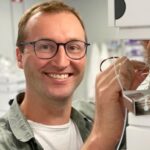
Confirmed keynote speakers
Tim Causon – Austria
Old and new directions for small molecule (bio-) analytical applications with ion mobility-mass spectrometry
Tim Causon is an Associate Professor at Institute of Analytical Chemistry, University of Natural Resources and Life Sciences, Vienna (Austria). His main areas of research are liquid chromatography, molecular mass spectrometry, and ion mobility-mass spectrometry (IM-MS) addressing diverse analytical method development questions as well as fundamental studies of ionisation and properties of small molecular ions. Current research topics include applications of these analytical techniques for optimization of both upstream (e.g., microbial cell factories) and downstream (e.g., purification) ends of the bioprocessing continuum, fundamental investigations of gas-phase isomers of small molecule systems, and addressing the urgent need for harmonization of IM-MS measurement and reporting standards. Starting in 2024, he will be the co-ordinator of the MSCA Doctoral Network “MobiliTraIN” (Ion Mobility Mass Spectrometry Training Network).
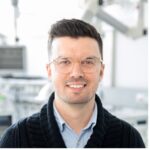
Marianne Fillet – Belgium
Characterization of extracellular vesicles, challenges, opportunities and prospects in therapeutics
Marianne FILLET is full professor at the department of Pharmacy at the University of Liège. She leads the laboratory for the Analysis of Medicines and the Mass Spectrometry platform. Her research themes focus on the development of analytical tools for biomarker discovery of human diseases and for the quality control of medicines (more particularly biopharmaceuticals), in an efficient and robust workflow (from sample collection to data analysis). Her research team is also developing analytical solutions to explore drug-target and protein-protein interactions in native-mimicking in vivoenvironment. She is a (co)author of more than 233 peer-reviewed papers, with a H-index (Scopus) of 45. She was chair/co-chair of several national or international congress, such as Drug Analysis/PBA 2014 and MSB 2022. https://lam-uliege.com
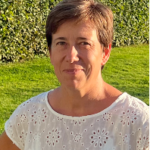
Sandra Furlanetto – Italy
Analytical Quality by Design and Quality control: from small molecules to biopharmaceuticals.
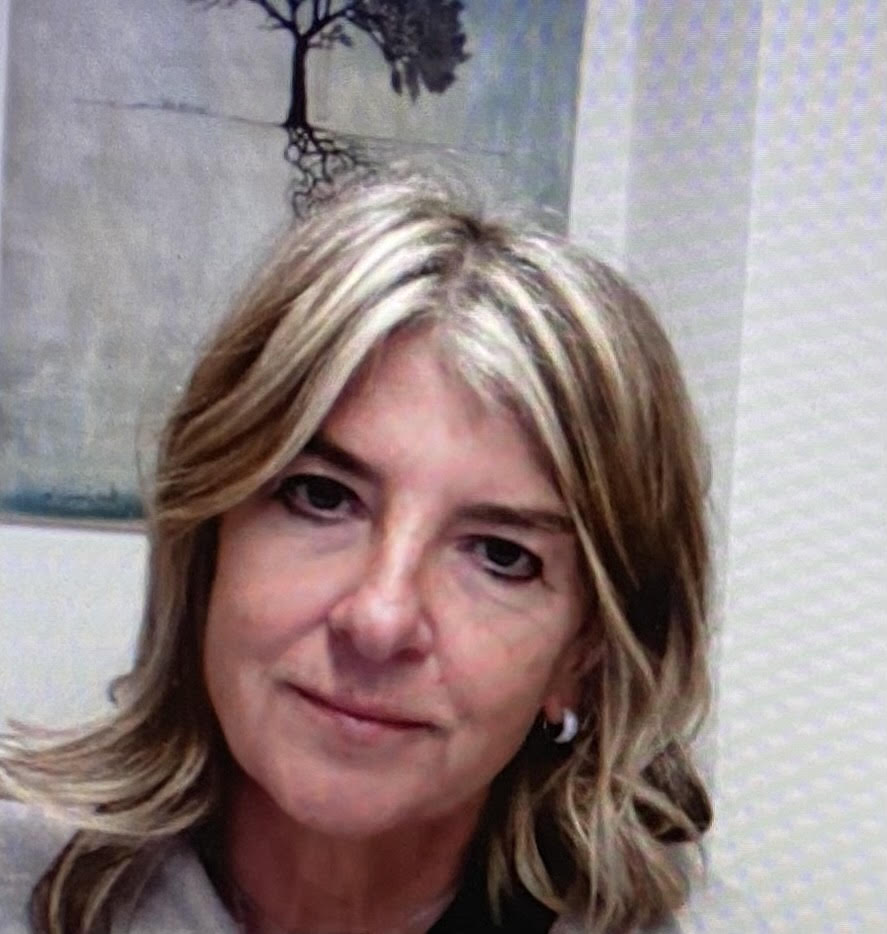
Ana Garcia-Campaña – Spain
Exploring Emerging Contaminants: Analytical Strategies in food safety and the Exposome Connection
Ana M. Garcia-Campaña is full Professor at the University of Granada (UGR) in Spain, and responsible for the research group “Quality in Food, Environmental and Clinical Analytical Chemistry” (FQM-302). Her research areas are focused on the use of advanced analytical platforms based on liquid chromatography and capillary electrophoresis coupled with mass spectrometry, fluorescence or ion mobility spectrometry for food and environmental quality control and safety, monitoring contaminants, including natural toxins and residues of veterinary and human drugs and pesticides. Developments of innovative and sustainable analytical methodologies and sample treatments, as well as biomarker studies in biological fluids related to the contaminant exposition have being carried out. She has published more than 225 articles, edited several books and co-authored book chapters (h-index of 51, Web of Science). Currently she is Vice-rector of Postgraduate Studies and Continuing Education and President of the Spanish Society of Chromatography and Related Techniques (SECyTA).
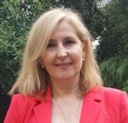
Kenji Hamase – Japan
Multi-dimensional chiral HPLC analysis of amino acids and related compounds for drug discovery and diagnosis
He graduated from The University of Tokyo and obtained his Ph.D. degree in 1996. Subsequently, he moved to Kyushu University, and was promoted to the full Professor in 2016. He is now a Vice Dean of the Graduate School of Pharmaceutical Sciences responsible for the international affairs (from 2018). He received The Japan Society for Analytical Chemistry Award for Young Scientists in 2003, The Pharmaceutical Society of Japan Award for Young Scientists in 2006 and The Society for Chromatographic Sciences Award (Japan) in 2019. His current research interests focus on the development of multi-dimensional HPLC methods for chiral amino acids and related compounds to study on their physiological functions, diagnostic values and the design of functional foods. Enantioselective analysis of extraterrestrial amino acids is also one of his research topics in cosmic materials including the asteroid Ryugu obtained by the Hayabusa 2 mission.
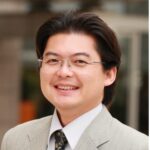
Zhengjin Jiang – China
From linear peptides to supramolecular mimotope peptide nanofibers: novel technologies for fast, efficient and high-throughput bioseparation of antibody drugs
He received his PhD degree in the Institute of Elemento-Organic Chemistry, Nankai University in 2001. Afterwards, he worked for one year in Unimicro (Tianjin) Technologies, Inc, followed as a postdoctoral researcher or research fellow in University of Tuebingen in Germany, King‘s College London, Pfizer (Sandwich, UK) Research Centre, Novartis (Horsham, UK) Research Centre, respectively. His research interest is in the fields of developing novel separation methods and equipment for pharmaceutical analysis, particularly integrated natural product screening platform, Dynamic tracking platform for in vivo PTM changes of monoclonal antibody etc. So far, he has published more than 160 peer-reviewed papers in prestigious international journals and given more than 60 oral presentations at international/domestic conferences (including 20 keynotes). He served as the editor of Journal of Pharmaceutical and Biomedical Analysis, the associated editor of Frontiers in Analytical Science (Pharmaceutical analysis) as well as the chair of the 27th International Symposium on Pharmaceutical and Biomedical Analysis in 2016. Current, he is also listed in the editorial advisory board of Journal of Chromatography A, Journal of Pharmaceutical Analysis, Current Analytical Chemistry, Chinese Journal of Pharmaceutical Analysis etc.

Jingwu Kang – China
Mass spectrometry-based multi-omics analysis for molecular pharmacology
Dr. Jingwu Kang graduated from the Shaanxi Normal University in 1990. He obtained his Ph.D in analytical chemistry in 1997 in Lanzhou Institute of Chemical Physics, Chinese Academy of Sciences. From 1997 to 2003 he worked as a post doctor at the State Key Laboratory of Oxo Synthesis, Lanzhou Institute of Chemical Physics, Department of Pharmaceutical & Pharmacological Sciences, Leuven University, Belgium, and the Institute of Organic Chemistry, Tubingen University Germany, respectively. In 2003, he joined the Shanghai Institute of Organic Chemistry, Chinese Academy of Sciences as a professor. Since 2015, he joins the State Key Laboratory of Life Organic Chemistry. His work mainly focuses on developing new methods for drug screening and target identification.

Michal Markuszewski – Poland
Metabolomics in gastrointestinal stromal tumor studies
Scientist, university teacher, pharmacist, professor of pharmaceutical sciences. In the years 2016-2020 he was a dean of the Faculty of Pharmacy, from 2020 vice-rector for science at MUG. He received his doctoral degree (supervisor: prof. dr hab. Roman Kaliszan) in 2000. He completed research internships at renowned research centres at the University of Bremen and the Eindhoven University of Technology. In the years 2000-2002, he completed a postdoctoral internship in Japan. He managed and coordinated numerous grants, also in international cooperation. Author and co-author of over 160 publications in international journals (approx. 3,800 citations, h index = 37). Main scientific interests in metabolomics, bioanalytics and pharmacokinetics.
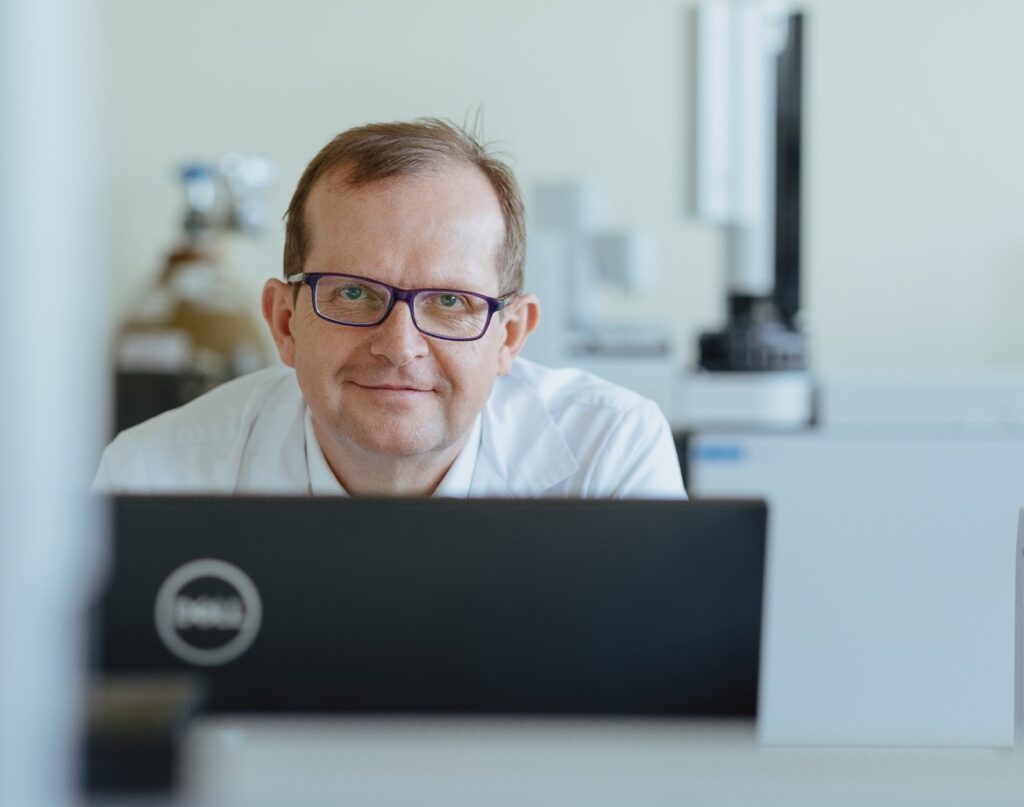
Gabriella Massolini – Italy
Hydrophilic interaction liquid chromatography (HILIC) for intact proteins analysis: a journey into new glycoconjugated vaccines.
Full time Professor of Pharmaceutical Analysis at Pavia University. Visiting scientist at Bradford University (UK) and associated professor at McGill University in Montreal in 1992 (Canada). From 2002 Prof. Massolini is a member of the PhD Teaching Council in “Chemistry and pharmaceutical sciences” and for 10 years director of the PhD School. Editor of Chromatographia since 2006 and member of the steering committee of PBA series of conferences. She was Director of the Department of Drug Sciences of Pavia University for 8 years. Member of the board of the Cluster in Life Sciences in Lombardia Region until June 2022. Member of the University Pavia Board. She has been active in all fields of separation sciences particularly in liquid chromatography. She has authored or co-authored 130 peer-reviewed scientific publications and presented many invited lectures at scientific meetings.
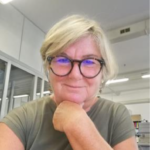
Sibel Ozkan – Turkey
Molecularly Imprinted Polymers (MIPs) in Sensors for pharmaceutical and biomedical assay- New Sensing Technologies
Prof. Ozkan is an active member of the European Chemical Society-DAC member on behalf of the Turkish Chemical Society. She is a member of the European Pharmacopoeia-EDQM- Chromatography Section. She has been involved in several analytical chemistry projects related to separation techniques, drug analysis sensors, nanosensors, DNA biosensors, enzyme biosensors, biomarkers, and so on. She has published more than 400 original and review papers, her h-index is 47 (indexed in ISI-WoS), and she is the Editor of 10 scientific books and about 55 book chapters. She is the Editor of the Journal of Pharmaceutical and Biomedical Analysis (SCI-Elsevier); Section Editor (Analytical & Environmental) of Essential Chem (Taylor&Francis), and Regional Editor (Europe part) of Current Pharmaceutical Analysis (SCI-Bentham). Besides, she is the Editorial Board member of Talanta (SCI), Chromatographia (SCI), Biosensors & Bioelectronics X, Critical Reviews in Analytical Chemistry, Analytical&Bioanalytical Chemistry, Advanced Sample Prep., Green Analytical Chemistry, JPBA Open, and so on.

Pablo Sinues – Switzerland
Translational exhalomics for diagnosis purposes in Clinics
Pablo Sinues is a chemist (University of Murcia, Spain) and holds a PhD in Mechanical Engineering (University Carlos III, Spain). He performed his doctoral research in Madrid and at Yale University in the former lab of Prof. John B. Fenn (2002 Chemistry Nobel Prize) under the supervision of Prof. Juan Fernández de la Mora. During this period, he got acquainted with electrospray ionization, ion mobility spectrometry and mass spectrometry. During his post-doctorate at ETH Zurich, he further developed mass-spectrometric methods for the real-time analysis of trace gases. Since 2017 he is Professor of Biomedical Engineering at the University of Basel, whereby he leads a research group on translational metabolomics. Pablo has co-authored > 75 peer-reviewed papers. He is currently co-president of the Swiss Metabolomics Society. He received several recognitions, including the Swiss Group for Mass Spectrometry Award and Eccellenza grant from the Swiss National Science Foundation.

Myriam Taverna – France
Capillary electrophoresis-based strategies to characterize or predict in-vivo behaviour of nanomedicines
Myriam Taverna was appointed full professor in analytical chemistry and pharmaceutical biotechnology in 2005 and senior member at the Institut Universitaire de France (IUF) in 2017. She is currently the director of the Institut Galien Paris-Saclay (IGPS-CNRS) at the university of Paris-Saclay, a CNRS-research unit composed of 7 teams. She is the head of one team strongly dedicated to analytical developments with a focus on miniaturized techniques (including microsystems, biosensors and capillary electrophoresis) for the analysis of peptides, (glyco)proteins being biopharmaceuticals, drug targets or disease biomarkers. She is particularly recognized for her expertise in capillary electrophoresis either for separation or preconcentration purposes. She has, published more than 185 international scientific papers, a dozen of international chapters. She is a member of the editorial board of Analytica Chimica Acta. Her research work in the field of biomarkers of Alzheimer’s disease, led her to co-found in 2014 the start-up Alzohis. She is currently exploring extracellular vesicles for diagnostic and therapeutic applications.

Jean-Luc Wolfender – Switzerland
Confident MS-based Metabolite Annotation in Natural Product Metabolomics : New opportunities in the digital age.
Jean‐Luc Wolfender leads the phytochemistry bioactive natural product (PBNP) group. Since the 1990s he helped introduce LC-MS and LC-NMR for the profiling of natural extracts for dereplication for accelerating the discovery of novel bioactive compounds. He is currently developing innovative MS‐ and NMR‐ based metabolomics approaches in various aspects of natural products research. He is specialised in the de novo structure identification of biomarkers at the microgram scale and is using a miniaturised approach that combines activity‐based HPLC profiling and high content information bioassays. He is interested in NP based drug discovery and evidenced-based phytotherapy. His research also covers to search of inducible NPs in response to stimuli in microbial interactions and plant defence.

Nicola Zamboni – Switzerland
Untargeted metabolomics in routine analysis
Nicola Zamboni is an Adjunct Professor at ETH Zurich, Institute of Molecular Systems Biology. He earned his PhD in metabolic engineering at ETH Zurich (2003), and did a postdoctoral at the Genome Technology Center, Stanford University. In 2005 he moved back to Zurich to establish a lab dedicated to investigating metabolic function and regulation. The lab pursues a data-driven approach that builds on mass spectrometry, e.g. metabolomics and tracer studies with stable isotopes. Measurements are enriched with a multitude of computational developments for data analysis, integration, and interpretation.



